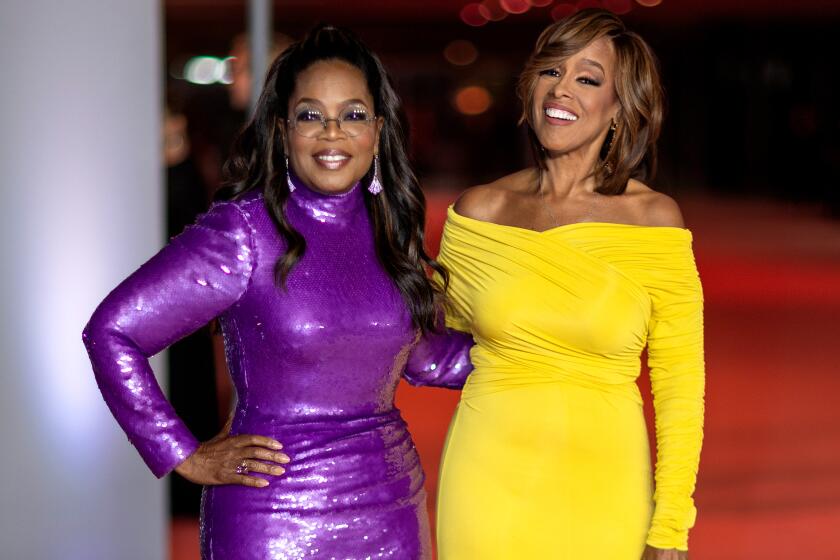Entertaining Ideas for Diversity in the Industry : Power of Minority Issues Underestimated
In a June 16 story headlined “Has NBC Given Up on Black Shows?” Greg Braxton discussed abandonment of black programming and the increasing scarcity of the positive black role model. This problem greatly concerns me. I fear that without a real effort by television creators and programmers, young blacks will come to believe that the only way to achieve success is through entertainment or athletics. And many in these professions are either inappropriate models or are unwilling to assume the responsibility. Take Charles Barkley’s declaration against becoming a role model.
Television must take the initiative in creating positive role models, not only for blacks but for all minorities. In an attempt to contribute to this movement, I accepted a role as a schoolteacher on an upcoming episode of “A Different World,” a quality program that presents positive images and strong role models for black youth. Unfortunately, NBC has canceled “A Different World” for next season.
I understand that programs that fail to perform in the ratings are replaced. That’s the business. But canceled programs that portray minorities must be replaced with others that portray minorities. If not, the progress we have made in addressing and legitimizing minority issues will diminish.
*
We must not only look at the quantity of minority portrayals but also their quality. Shows like “A Different World” and “I’ll Fly Away” may not pull in impressive numbers, but the networks must recognize that the message of these shows is important. I believe the decision-makers must weigh the costs and benefits of programming choices.
In the electronic age, television has become both teacher and baby-sitter. In this capacity, television creates reality. When “The Cosby Show” portrayed blacks as doctors and lawyers, young black audiences saw these goals as realistic and obtainable. The Huxtables became role models that inspired and motivated a generation of viewers. We need to make this type of programming less of an exception.
We cannot underestimate the power of television, and we must distribute its power fairly. Minorities must be allowed to benefit equally from television’s ability to legitimize, inspire and motivate. If we balance television programming wisely, it can be a great force in creating social harmony.
The complete guide to home viewing
Get Screen Gab for everything about the TV shows and streaming movies everyone’s talking about.
You may occasionally receive promotional content from the Los Angeles Times.



